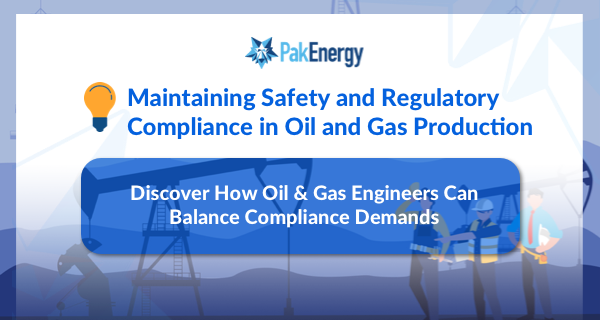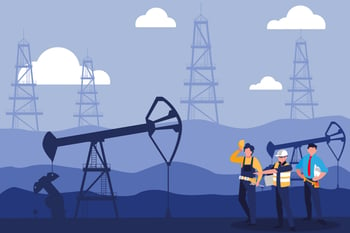

We understand the challenges oil and gas production engineers face in maintaining safety and regulatory standards as part of their operations. Overseeing various tasks to protect workers, the environment, and equipment while complying with regulations at all government levels can seem like a hassle or distraction, taking time away from core work. Balancing compliance demands with the need to focus on efficient production requires careful planning and a deep understanding of the role's technical and regulatory aspects.
Regulatory Compliance
Oil and gas production engineers face the ongoing challenge of navigating the complex landscape of local, state, and federal regulations designed to protect the environment and public health.

- Environmental Protection: These regulations often focus on minimizing the environmental impact of operations. All work must comply with rules regarding emissions control, waste management, and the protection of water resources.
- Accurate Reporting and Documentation: Regulatory bodies require detailed reports and documentation to monitor compliance. Maintain accurate records of emissions, waste disposal, and other operational metrics and submit this data to regulatory agencies as required.
- Staying Updated on Regulations: Regulations can change frequently, making it critical to stay informed about new rules and amendments. This involves continuous education and collaboration with regulatory experts to ensure all operations remain compliant.
Safety Protocols
Conducting all operations safely is a top priority for oil and gas production engineers. This involves a comprehensive understanding and implementation of safety standards to prevent accidents and incidents that could harm personnel, damage equipment, or negatively impact the environment.

- Adherence to Safety Standards: Stay knowledgeable about industry safety standards and guidelines, ensuring all procedures comply with these standards, covering everything from the design and maintenance of equipment to daily operations.
- Emergency Response Plans: Developing and implementing emergency response plans that outline steps to take in case of incidents such as spills, fires, or equipment failures is crucial for potential emergencies. Regular drills and training sessions ensure all personnel are prepared to act swiftly and effectively.
- Safety Audits and Inspections: Regular audits and inspections of equipment and processes help identify potential safety hazards. Consistently conduct these evaluations to maintain ongoing compliance and promptly address issues.
Risk Management
- Risk Assessment: Conduct thorough risk assessments to identify potential hazards associated with production operations, evaluating the likelihood and impact of events like equipment failures and leaks.
- Preventative Measures: Once risks are identified, develop and implement strategies to mitigate them, such as enhancing equipment maintenance schedules, upgrading safety systems, or revising operational procedures to reduce the likelihood of accidents.
- Monitoring and Review: Continuous operation monitoring is essential in identifying emerging risks and ensuring mitigation measures remain effective. Regularly review and update risk management plans to adapt to new challenges and technological advancements.
While important, these tasks can be complex and time-consuming for production engineers, keeping them from other work. The best oil and gas production software will allow production engineers to quickly and easily manage tricky compliances, saving time to focus on primary responsibilities.
PakEnergy’s oil production software assists engineers in maintaining these high standards by providing advanced tools for monitoring safety protocols, staying current with regulatory changes, and managing risks effectively. Learn how Pak Production can help you streamline effective processes in managing safety and regulatory requirements.
Schedule your demo today!

